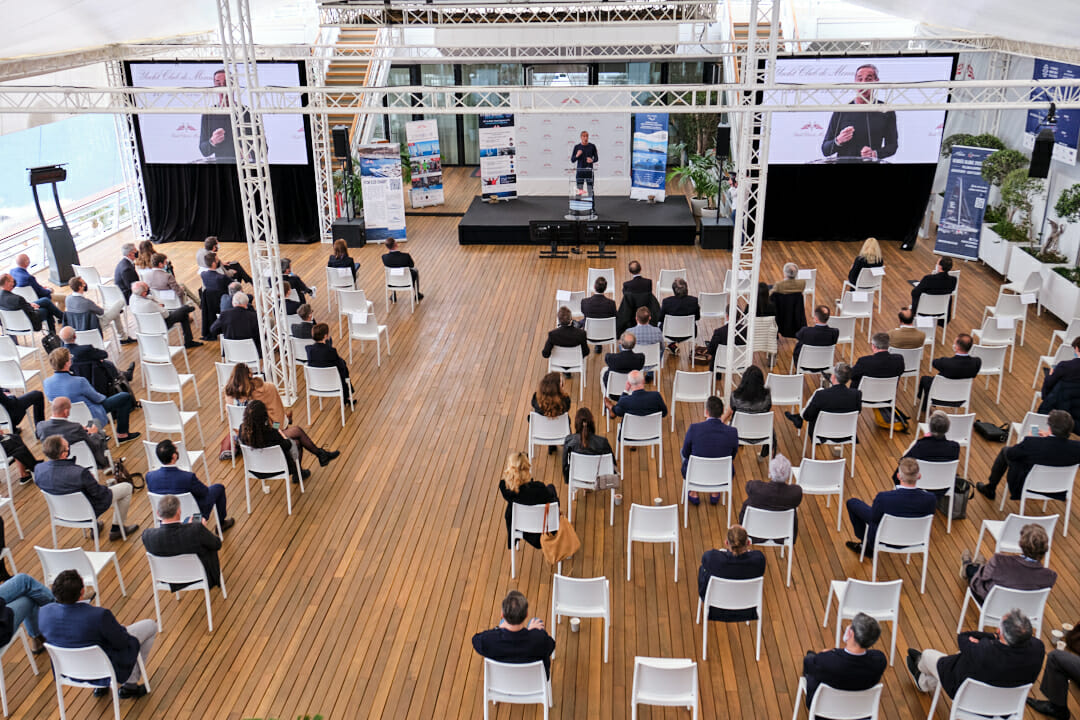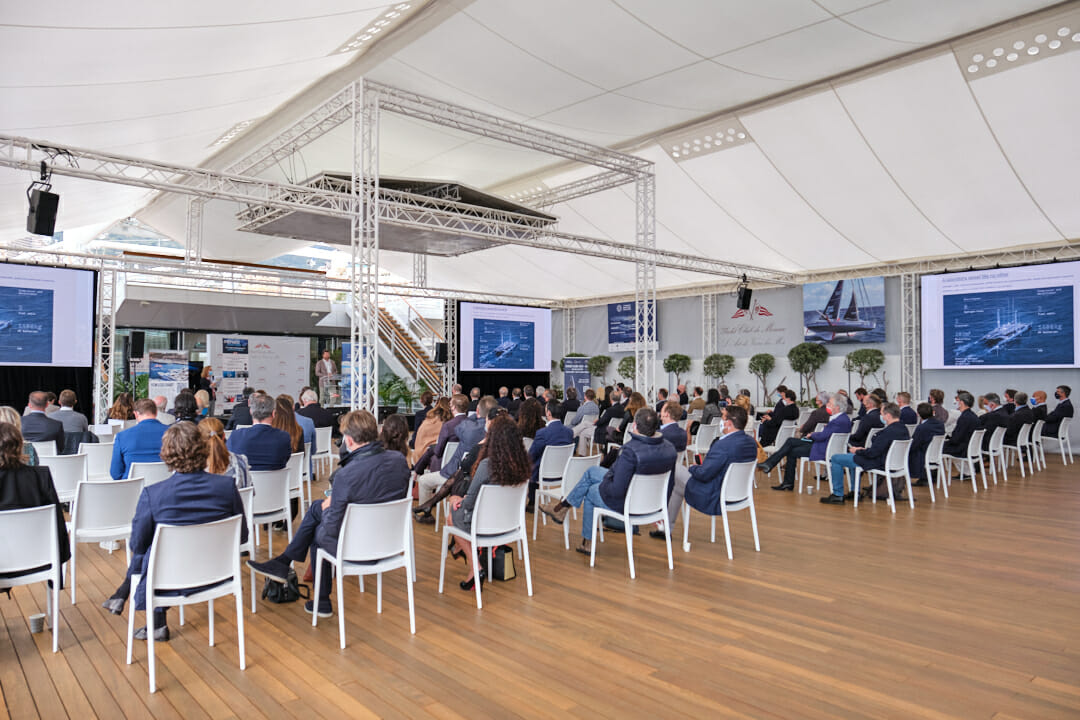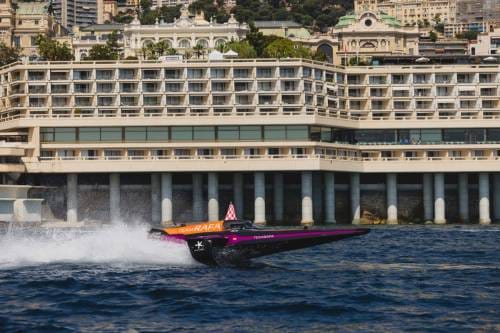As part of Monaco Ocean Week (22-27 March 2021), Yacht Club de Monaco was responsible for the yachting component during a week organised by the Prince Albert II Foundation and Monaco Government, in partnership with the Monaco Oceanographic Institute and Monaco Scientific Centre, the purpose of which was to progress thinking on how to protect the marine environment.
YCM therefore held its 10th La Belle Classe Superyachts Environmental Symposium on 25th March to bring owners and captains up to date with what is happening on this issue in yachting and unite all those involved in the sector. YCM sees itself as a crossroads for discussions.
Six experts in their field, including explorer Mike Horn and journalist Guillaume Pitron attended to share their experience and expertise on the theme: New energy sources and carbon emissions: looking forward.

Hydrogen an energy for the future
Representing a real opportunity to accelerate the energy transition, hydrogen is a carbon neutrality lever, and part of future solutions for our planet and the world’s population, 70% of whom live along the coast. “25% of the world’s population depend on sea fishing, 25% of animal and plant species could disappear within 40 years, 30% of the marine biodiversity lives in corals yet by 2050 all corals could be dead (the phenomenon is accelerating)”, noted Jérémie Lagarrigue, CEO of EODev (Energy Explorer Developments).
He went on to explain: “Hydrogen presents as the only energy system that meets regulatory requirements and allows business to continue”. Inexhaustible with high-density energy, considered the best ally of renewable energies and offering fast refuelling, clean, quiet and light, hydrogen’s advantages are well established.
Turnover is increasing exponentially and “this is going to improve,” said Jérémie Lagarrigue, “In 2017, hydrogen was worth 2 billion dollars, we are counting on that rising to 2.5 trillion dollars by 2050, with 30 million jobs created.”
Industry professionals are also giving hydrogen a chance, as evidenced by the La Ciotat Refit Shipyards in a talk by Jean-Yves Saussol, General Director of the La Ciotat Shipyards.
Construction of a new 40,000m2 platform including cranage equipment with a near 5,000 tonne capability, destined for superyacht refits, meets environmental requirements. A call for projects was launched in December 2020, won by Hynova Yacht, the first recreational boat brand in the world to come out with an electro-hydrogen propulsion system.
Hydrogen at sea
Is the development of hydrogen ultimately a solution that could benefit yachting? Yes, if one is to believe in the growing number of projects benefiting from hydrogen, be they sail or motor vessels, for example: Samana 59 from Fountaine Pajot, the 60m Orcageno, Aquon One, The New Era, the 40-ft Hynova Yacht and the hydrogen project on Viking, a 29m Sunseeker refit, not forgetting Mike Horn’s expedition sailing boat Pangaea (35m).
For his part, explorer Mike Horn developed an equipment project based on hydrogen technology for his expedition sailing boat Pangaea. Based on both his experience of the situation with the environment and power requirements for carbon-free mobility, he contributed to development by CEA-Liten of a new generation of a minimum 300kW
fuel cell to be fitted to his boat. A device he is testing in motor racing ashore before tackling extreme conditions with Pangaea.
The YCM member stressed the need to take the leap into the massive investment required to deploy hydrogen facilities, in particular for production and distribution of green hydrogen produced from renewable energy. He reminded the audience that the leisure boat and superyacht sectors had a major role to play in transforming what fuel sources are used and eradicating use of fossil fuels.

Environmental impact of superyachts under the microscope
Under the aegis of the ‘Monaco Capital of Yachting’ project, initiated by the Yacht Club de Monaco with the aim being to make the Principality a centre of excellence and innovation in luxury yachting, YCM in partnership with Credit Suisse launched the SEA Index. Intended for owners of +40m yachts, this benchmark will help them assess their yacht’s CO2 emissions and improve its environmental performance. Already up and running and available on line the customised tool aims to promote best practices by awarding an ecological ranking.
Collaborative and evolving, the aspiration is for the SEA Index to be extended to other aspects on a yacht to become a multi-facetted index covering propulsion systems, heat recovery, chemical products, waste and water. YCM President HSH Prince Albert II officially inducted the owners of M/Y Ragnar (68m) and S/Y Maltese Falcon (90m) who have embraced this approach. It was also announced that SEA Index certificates will be issued by Lloyd’s Register. “This is true recognition by a renowned international body,” commented Michel Buffat, Head of Aviation & Yacht Finance, Credit Suisse.
Measuring superyachts’ environmental impact is an ambition shared by Water Evolution which through its YETI Tool can measure a yacht’s life cycle.
Yachting at the heart of debates
Electric propulsion, Greentech and rare metals: which energy transition for yachting? A broad question that French journalist and documentary filmmaker Guillaume Pitron tried to answer.
However, the yachting sector has up to now been relatively protected from “green” regulations (unlike freight, for example) but is “being invited more and more to make its energy transition, in particular by respecting international regulations designed so the transport sector no longer emits carbon by 2050. It’s an inevitable change that must be anticipated now”.
To achieve this, several solutions are considered and are possible: using thermal engines with cleaner fuels (biofuel, natural gas, algo-fuel, bioethanol) or 100% electric engines or hydrogen fuel cells. “While all these avenues may have their drawbacks, the total sum of their advantages is undeniable”.









